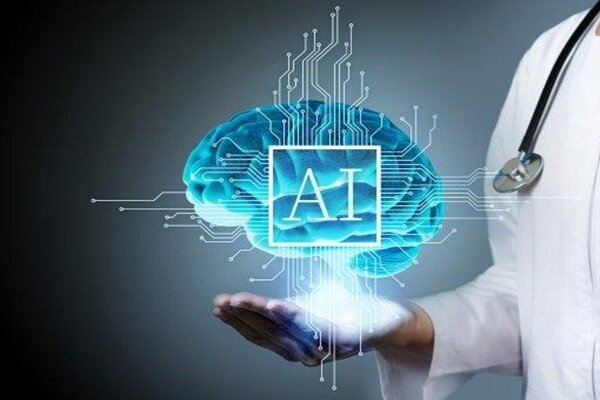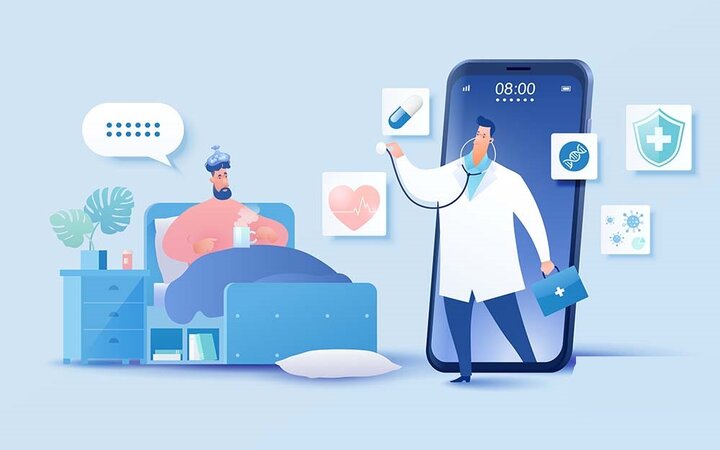Benefits of using artificial intelligence in medicine

According to the Mehr Reporter, AI (AI), as one of the most advanced technologies in the present era, has made significant changes in the medical field. Using machine learning algorithms and complicated data processing, artificial intelligence has been able to improve the accuracy, speed and quality of medical services Forgive. This report examines the key benefits of artificial intelligence in medicine.
The benefits of artificial intelligence in medicine
Many medical errors occur due to the failure of the medical staff, which is predictable in some cases given that these human conditions can be different. Fatigue, personal problems, mental states, distraction and other problems can affect human performance, but different technologies can work tirelessly and without error with robots and systems and even point out human errors. For this reason, using artificial intelligence can greatly reduce medical errors.
Artificial intelligence by analyzing medical images such as radiography, MRI and CT scans can identify abnormalities with higher accuracy than human experts.
There are various algorithms that can speed up the diagnosis of the disease. This will help the patient less treatment and reduce patients' costs. Especially in brief diseases due to the availability of artificial intelligence systems, there may be no need to see a doctor in these diseases in the near future and can quickly be aware of the type of disease and treatment.

The massive volume of patient data in the short time is one of the advantages of artificial intelligence. AI algorithms can review thousands of medical records within seconds and identify the patterns of disease.
Forecast and Prevention of Diseases: Using patient data and historical patterns, artificial intelligence is able to predict the risk of chronic diseases such as diabetes and heart disease. Smart systems provide the necessary warnings for preventive measures.
Artificial intelligence offers personalized therapies by analyzing the genome and medical records of patients. This method is effective in the treatment of cancer (accurate medicine) and the administration of drugs appropriate to individual characteristics. Human errors, such as incorrect diagnosis or administration of the wrong drug, are reduced with the help of artificial intelligence. AI systems prevent risky decisions by providing evidence -based solutions. Surgical robots guided by artificial intelligence allows for low aggressive and precision surgical operations.
By automating processes and faster detection, the costs of additional tests and long hospitalization are reduced. In other words, using artificial intelligence systems and platforms, in many cases, both treatment and treatment costs are reduced. On the other hand, due to the intelligence of hospitals and medical centers, their costs are also reduced and can receive less costs from patients.
AI apps also provide access to medical services in remote areas.

Using artificial intelligence capacity to diagnose medical failure
The importance of forensic medicine in the Iranian legal system is especially obvious in the realization of criminal and civil justice. The organization's expert reports as a valid document in the courts are based on judicial decisions and prevent the conflict of interest or judicial mistakes. Also, in sensitive cases such as domestic violence, traffic accidents, or family disputes, the institution's impartial opinions contribute to transparency and fairness. In addition, the Forensic Medicine Organization has expanded a network of specialized laboratories and centers throughout the country, facilitating access to expert services to the community.
Abbas Masjidi, Head of Forensic Medicine In this regard, the country said that the use of artificial intelligence in committees is one of the major concerns of the organization, saying that fortunately the initial phase of the artificial intelligence plan has begun in the process of handling commission cases and good steps have been taken in this regard, which is effective in accelerating the investigation and reducing errors.
He added: Artificial intelligence is also used in the field of medical failure through citing clinical guidelines notified by the Ministry of Health, which determines whether or not a medical intervention occurred. For example, in a case related to abdominal surgery, artificial intelligence adapts the measures set out in the clinical guide to the measures taken by the physician and will diagnose it if the doctor has made a mistake.
Challenges and limitations
Of course, the use of artificial intelligence in medical affairs also poses challenges; Including the need for high quality data and continuous training of algorithms, ethical and privacy concerns, and over -dependence on technology and reducing human role in vital decisions.
Conclusion
Artificial intelligence has made a dramatic change in medicine by providing smart solutions. From improving diagnosis to personalization of treatment, this technology helps to enhance the quality and efficiency of health systems. However, integration of success Cooled AI in medicine requires attention to ethical, legal and technical challenges. In the future, the development of artificial intelligence can lead to more preventive and preventive medicine.
(tagstotranslate) Artificial Intelligence (T) Medical malfunction (T) Forensic Medicine (T) Abbas Masjedi Arani
Source:mehrnews